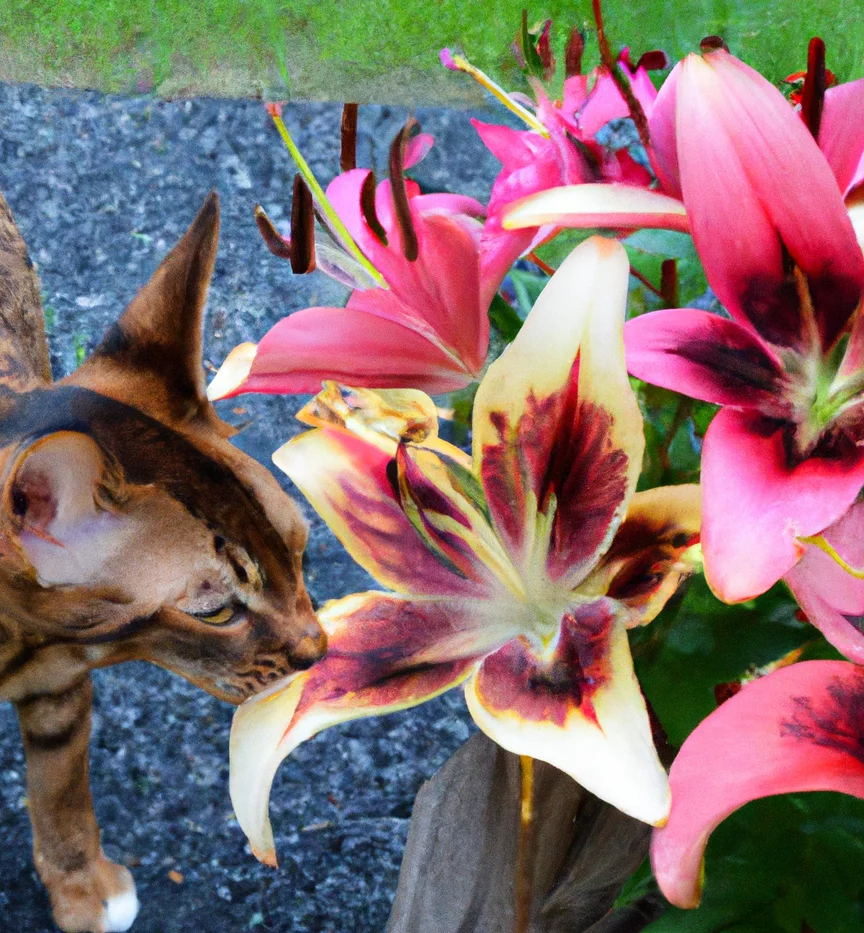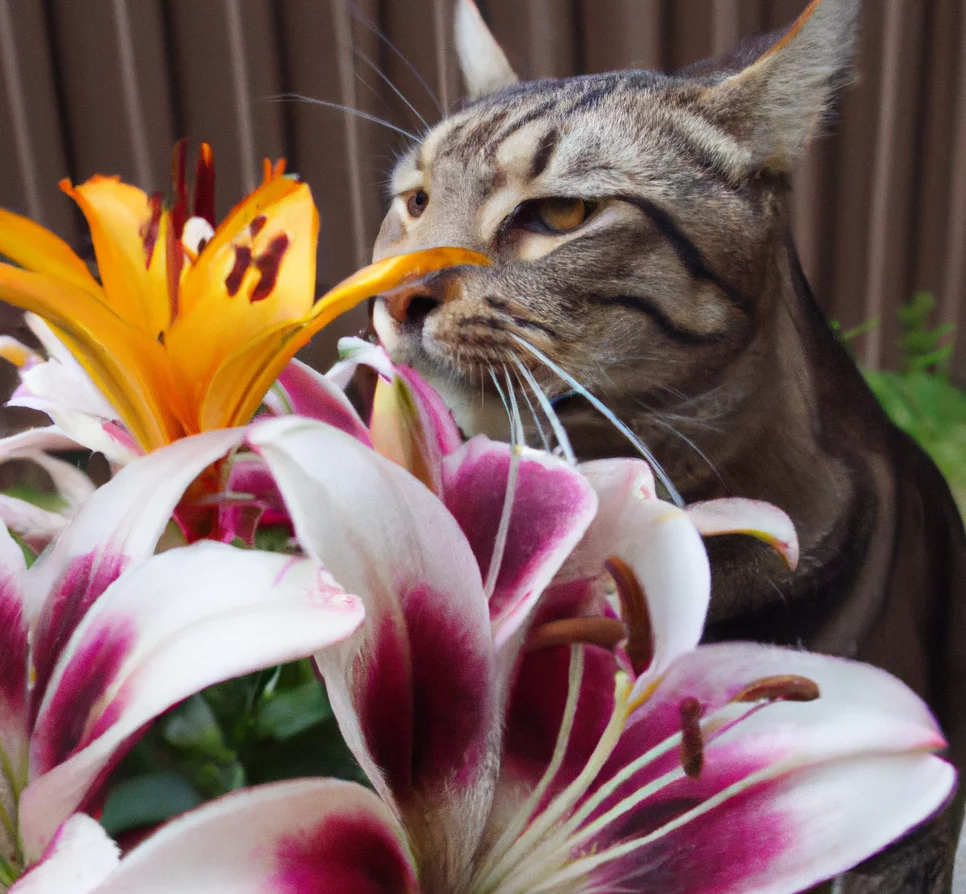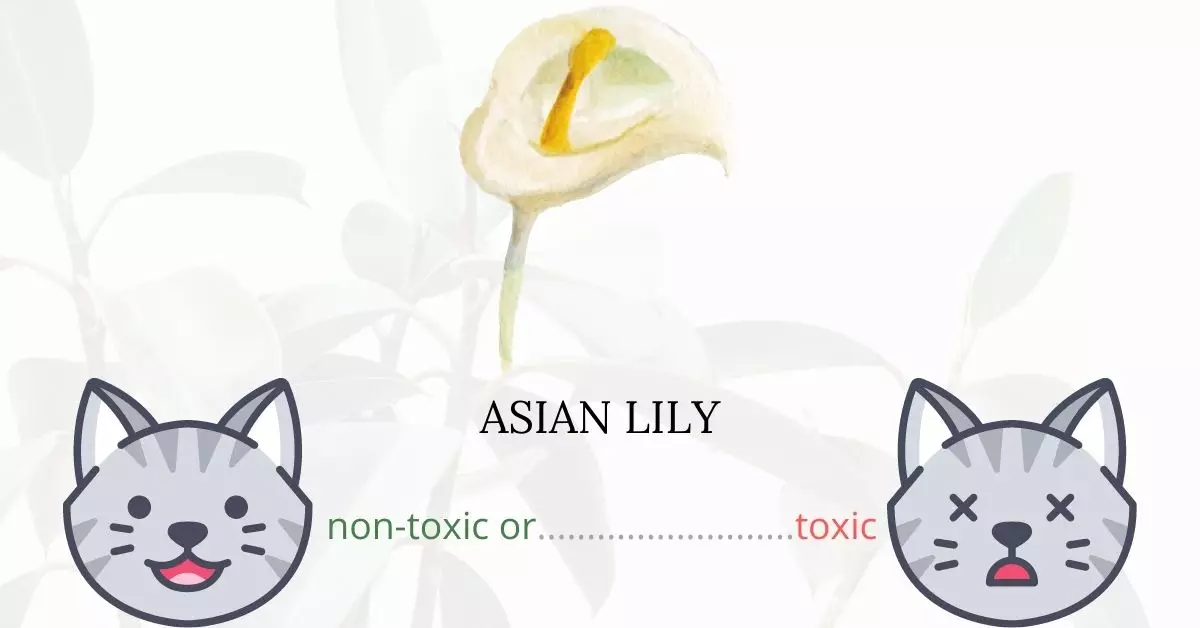Yes, Asian Lilies (Lilium Asiatica) are highly toxic to cats. Even minor ingestion of their petals, leaves, pollen, or even the water from a vase containing an Asian Lily can lead to acute kidney failure and possibly result in death.
This article was collaboratively written with input from a team of experienced DVMs (doctors of veterinary medicine). Their invaluable insights ensure we provide accurate and up-to-date information about the dangers posed by various plants, especially Asian Lilies, to our feline companions. Our findings are also reinforced through extensive research from high-authority sources such as ASPCA and PetMD.
Clinical Signs of Asian Lily Poisoning in Cats

When a cat comes into contact with, inhales the fragrance of, or consumes any part of an Asian Lily, it can exhibit a range of clinical signs due to the plant’s toxic properties. Recognizing these signs early is crucial for the well-being of your feline friend. Below are some symptoms and the reasons they may occur:
- Vomiting: This is one of the primary ways the cat’s body tries to rid itself of the toxic compounds ingested from the lily.
- Appetite loss: The toxins can irritate the stomach and intestines, making the cat feel unwell and less inclined to eat.
- Diarrhea: This is another response of the digestive system trying to eliminate the harmful substances.
- Dehydration: Continuous vomiting and diarrhea can lead to significant loss of fluids, resulting in dehydration.
- Hiding: A cat that feels unwell or is in pain will often seclude itself from its usual environment or from human contact.
- Behavioral changes: The discomfort and pain can cause mood swings or unusual behaviors in the affected cat.
- Seizures: The toxins may interfere with the normal function of the cat’s brain, leading to seizures.
- Shock: A severe reaction to the toxin can lead to a state of shock, which is a life-threatening condition.
- Loss of weight: Prolonged appetite loss and the body’s struggle to cope with the toxin can lead to weight loss.
- Lethargy: The general malaise and the body’s constant fight against the toxin can sap the cat’s energy, leading to noticeable lethargy.
- Vomit or stool stained with blood: This indicates internal damage or irritation caused by the toxin, highlighting the urgency for medical intervention.
If your cat displays any of these signs after coming into contact with an Asian Lily, seek veterinary care immediately. Early intervention can significantly improve the chances of a positive outcome.
First Aid and Treatment of Asian Lily Poisoning in Cats

Induced vomiting or the use of activated charcoal to inhibit toxin absorption may be used as an emergency treatment. removing the toxic principles from the cat’s body is the primary purpose of the said treatments. Within eighteen hours of the initial poisoning, intravenous fluid treatment must be administered. Nutritional therapy may be also required if your cat is vomiting a lot.
In case of kidney failure, your cat may need to be admitted to the hospital for up to four days, depending on the severity of his or her condition. An aggressive fluid treatment regimen will be used to treat acute kidney failure to reestablish electrolyte and fluid balance.
Recovery from Asian Lily Poisoning in Cats

Recovery from Asian lily poisoning depends on the promptness of medical attention given to your cat. If your cat suffered from kidney damage, recovery may take a little more time. Make sure to follow the veterinarians’ after-treatment instructions. Once you return home, ensure your cat has a warm, safe place to rest.
Prevention of Asian Lily in Cats
If the cause of your cat’s poisoning is from Asian lilies in your home, discard them right away. If Asian lilies are present in your neighborhood, it is highly recommended to keep your cat safe inside your home. Familiarize yourself with both toxic and non-toxic plants to ensure your cat’s wellness and safety.
If you love plants but have cats at home, check out these lists:





